That Cold Day in the Park (1969)
Directed by: Robert Altman
Written by: Gillian Freeman, Peter Miles
Starring: David Garfield, Michael Burns, Sandy Dennis, Susanne Benton
USA/Canada
AVAILABLE ON DUAL FORMAT BLU-RAY AND DVD from EUREKA ENTERTAINMENT
ALSO AVAILABLE STREAMING ON ARROW FROM 8TH APRIL 2024
RUNNING TIME: 113 min
REVIEWED BY: Dr Lenera, Official HCF Critic
Frances Austen is a lonely, neurotic spinster, her circle of friends entirely inherited from her dead mother. Just before hosting a dinner party, she walks through a park and notices a teenage boy sitting on a bench. During the party, she looks out the window and notices that the boy is still on the bench despite it pouring down with rain, so afterwards she goes outside and invites him into her home to dry off. The boy seems to be mute and Frances talks constantly. All seems reasonably ok though until the boy stays overnight and Frances locks him in his bedroom, though the boy gets out through the window and is certainly not mute. Nonetheless, Frances seems to be developing an obsession with him….
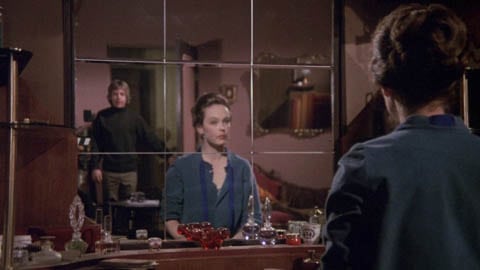
Sort of like The Collector if had been directed by Roman Polanski or Ingmar Bergman, That Cold Day In The Park is a slow but riveting psychological thriller that delves deep into depressed emotions, with a very strange atmosphere that makes the whole film quite disturbing even when not much that is disturbing is taking place onscreen. I was very much looking forward to seeing it because of the way that director Robert Altman’s [whose earlier work I’m not too familiar with] 3 Women, released not that long ago by Eureka Entertainment, had impressed with so much, and, while That Cold Day At The Park isn’t anywhere good as that picture which I thought was a near-masterpiece, it still had me pretty much glued to the screen from beginning to end. If you like everything to be explained and are used to films like this having lots of shocks, blood and the like, than you may be disappointed and even bored with it, but it’s really quite unique [though I say this as someone who, as I mentioned above, isn’t experienced with older Altman], almost dreamlike in its feel and, while the climax is a little bit predictable, there isn’t really any other way I would have preferred the story to have ended.
It was Altman’s second feature film after Countdown, which had been a bad experience for him, and was obviously a very personal project for him. It was based on a 1965 novel of the same title by Peter Miles, and scripted by Gillian Freeman. He failed to get Columbia interested in it and therefore had to make it independently, which meant that Altman’s original idea of having the film take place in London also had to be scrapped. The novel actually took place in Paris, and also contained a strong gay element [the Frances character was originally a man] which was removed in the screenplay, while supposedly star Sandy Dennis vetoed some of Altman’s wilder ideas. Jack Nicholson was keen on playing the role of ‘the boy’, but Altman turned him down because he was too old. Shot in Vancouver, Canada very cheaply on mostly one set, That Cold Day In The Park therefore didn’t lose too much money at the box office, but was very poorly received by most critics [I reckon that their response may have been different if Polanski or Bergman had made it]. Altman’s next film was M.A.S.H., which catapulted him into the big time, but one of its producers later said that, if he had seen That Cold Day In The Park, he would never have asked Altman to direct the film. It seems to have remained one of his most obscure pictures and I can only hope that Eureka’s release of the film will get it to be a bit more widely seen.
We’re given a great sense of the lonely life of Frances, a woman who has been prematurely aged by her environment, very concisely. She lives in the former apartment of her mother, who resided there with Frances until her death, bemoaning the loss of her husband and highlighting the inadequacy of her daughter as company. Her small social circle consists of people at least twenty years older than her. She lives a solitary life and has no discernible employment. I’ll say right here that Dennis totally embodies the character and is extremely compelling to watch right from the very first scene. By quite subtle looks and gestures, Dennis also clues us in to the fact that there might be something psychologically wrong with her. Her early scenes with ‘the boy’ are fraught with tension as we are also reminded how great watching a two-hander can be, especially with the dynamic that you have here of having the woman constantly chatter and ‘the boy’ not say anything at all. The latter barely does anything at first either until he plays some extremely discordant music on the organ [music that seems to somehow show Frances’ damaged psyche], then dances around the room to Greek folk-type music. He then pretends to be asleep so that Frances is unable to retrieve something stuck between the cushions of the settee without waking him.
When ‘the boy’ awakes to find he’s been locked in the bedroom, a stage of the story where I really did wonder if the rest of the film was going to just feature these two characters and I wouldn’t have minded if it had done so, it now becomes very obvious that something is up with Frances, though ‘the boy’ is an odd character too, a person who actually can talk but often goes through long periods without speaking at all. He manages to escape the house anyway and it’s revealed that he lives with his sister and her boyfriend on a boat….before he then returns to the house, a decision that rather weakened the film for me as I just could not work out why on earth he would do that except that he liked Frances’ affluent lifestyle, but then he doesn’t seem too bothered by the odd games Frances likes to play either. The not entirely unexpected escalation of oddness occurs alongside lots of little things that are merely hinted at, while there’s much sexual unease. The boy sees his sister and her boyfriend having sex, and isn’t allowed inside the boat until they’ve finished, but later on he has to fend off his sister’s advances, an element that perhaps isn’t really neccessary but which certainly adds to the strangeness….though I wondered if, despite what I wrote earlier about the homosexual aspect from the book being supposedly removed, ‘the boy’ was actually gay – it’s just that the filmmakers decided to be subtle about it. There’s so much to ponder on as the film heads to its brutal climax, so much so that the general absence of scenes of horror beforehand certainly wasn’t felt much by this critic.
The slight feeling of alienation the film provides is increased by the way many scenes are viewed through windows, sometimes so that faces are distorted. The most impressive example of this is when ‘the boy’ has first escaped from the house and enters a building with floors of large apartments. The camera moves up and down the outside of the building to follow ‘the boy’s’ progress through several floors. There’s also lots of great stuff with mirrors [always good for suggesting mental instability] and lots of zooms, sometimes into nothing, but overall cinematographer Laszlo Kovacs’ work is very striking throughout and to be honest That Cold Day In The Park wouldn’t be half the film it is without it. Elsewhere Altman has already developed his penchant for overlapping dialogue, the most memorable example of this being where Frances is waiting in a gynecologist’s waiting room and we can overhear most, though not all, of a conversation between three women covering such topics as birth control and penis size. It’s totally irrelevant to the plot really, but adds to the film’s flavour.
Though it’s really Dennis that stands out, Michael Burns is also impressive as ‘the boy’, a part that is actually more enigmatic that the one Dennis plays and therefore, in a way, harder to play well. Susanne Benton [whom I recognised from A Boy And His Dog], while lumbered with most of the film’s nudity, also does well as the boy’s somewhat bonkers sister [nearly everyone seems a little mad in this movie!]. Johnny Mandel’s score provides a good main theme that manages to convey both longing and an off kilter aspect. That Cold Day In The Park would have been probably made as a more conventional thriller in other hands, without really needingh to change very much of the story, but I’m very glad Altman made it the way he did. It’ll stick in the mind for longer, for a start. If you have a taste for slow burning fare with a strong helping of just plain oddness, then I very much recommend that you check out That Cold Day In The Park.
Eureka Entertainment’s Blu-ray, which a bit of research reveals is superior to the Region ‘A’ disc from Olive Films, has a few shots which are a little hazy, but it’s possible that they were intended to look that way so it’s hard to really tell. Most of the film looks very fine indeed. Aside from the trailer, the sole extra is film writer David Thompson’s look at the movie, which doesn’t analyse it as much as I hoped for but still provides plenty of information.
SPECIAL FEATURES
*New high-definition master
*Uncompressed audio on the Blu-ray
*New video interview with critic and filmmaker David Thompson, editor of Altman on Altman
*English subtitles for the deaf and hearing-impaired
*PLUS: A booklet featuring new writing and archival images

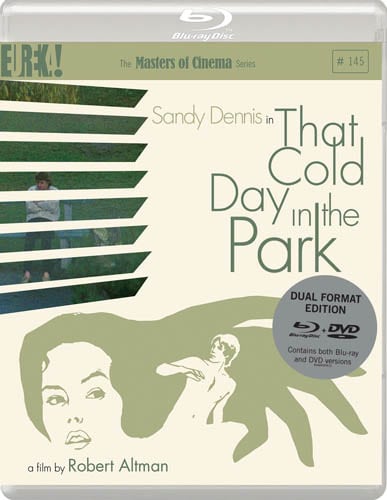
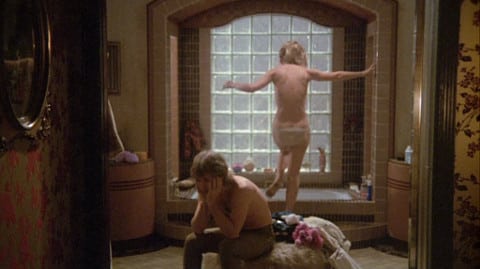




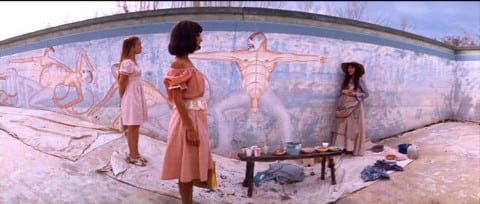
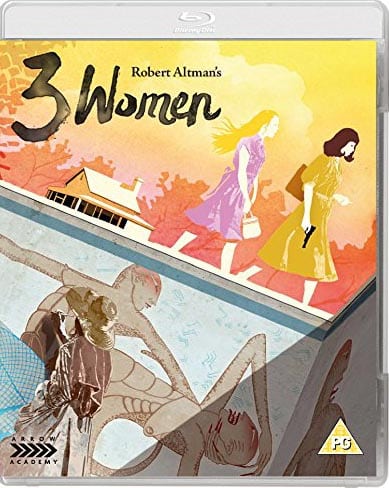
Be the first to comment